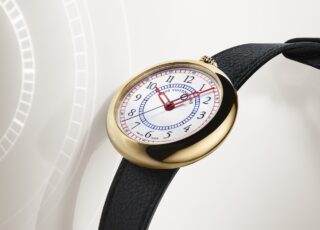This website uses cookies so that we can provide you with the best user experience possible. Cookie information is stored in your browser and performs functions such as recognising you when you return to our website and helping our team to understand which sections of the website you find most interesting and useful.
Rocket man: celebrating 60 years since the first manned space flight
By Rory FH Smith | 12 July 2021 | Cars & Yachts
Tempus discovers the zero-to-hero story of Yuri Gagarin, the Russian cosmonaut who won the space race.
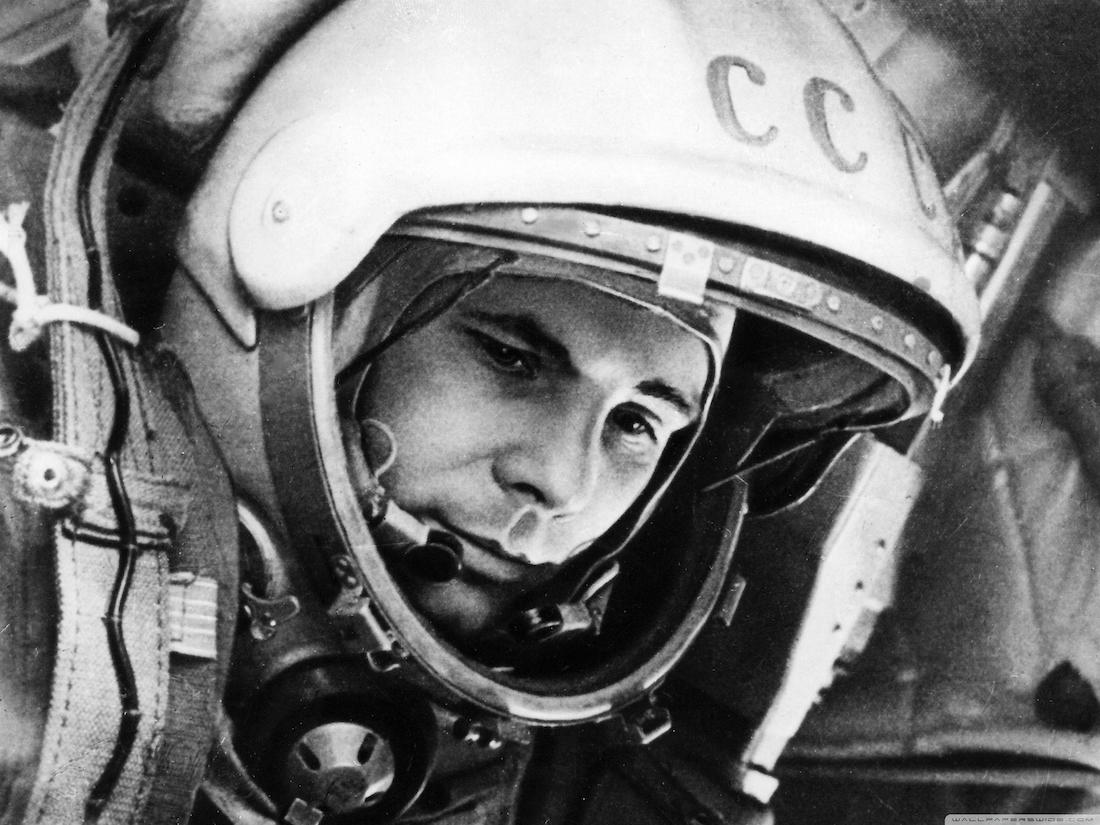
When Yuri Alekseyevich Gagarin was born on 9 March 1934, in the Russian village of Klushino, 160km west of Moscow, it’s unlikely any of his family would have predicted his meteoric rise to stardom years later.
Born and raised on a poor and rural communal farm far from the capital, Gagarin would become the smiling – albeit unlikely – frontman of the Russian space programme of the early 1960s.
Despite his humble beginnings, he was catapulted to fame aged just 27 when he became the first human to make it into space and return to earth in 1961.
For most people, the story of Gagarin ends happily with his successful space mission the celebrations that followed, but the reality is quite different. Few know the true and full story of the farm boy turned universal explorer – a story of unimaginable hardship, bravery, success and tragedy.
Officially classed as ‘peasants’ by the Soviet regime, the Gagarin family worked on the local collective farm and, although hard up, lived a contented life. The second of three sons, Yuri spent his early years by the side of his father, a skilled carpenter, until the outbreak of the Second World War changed their lives forever.
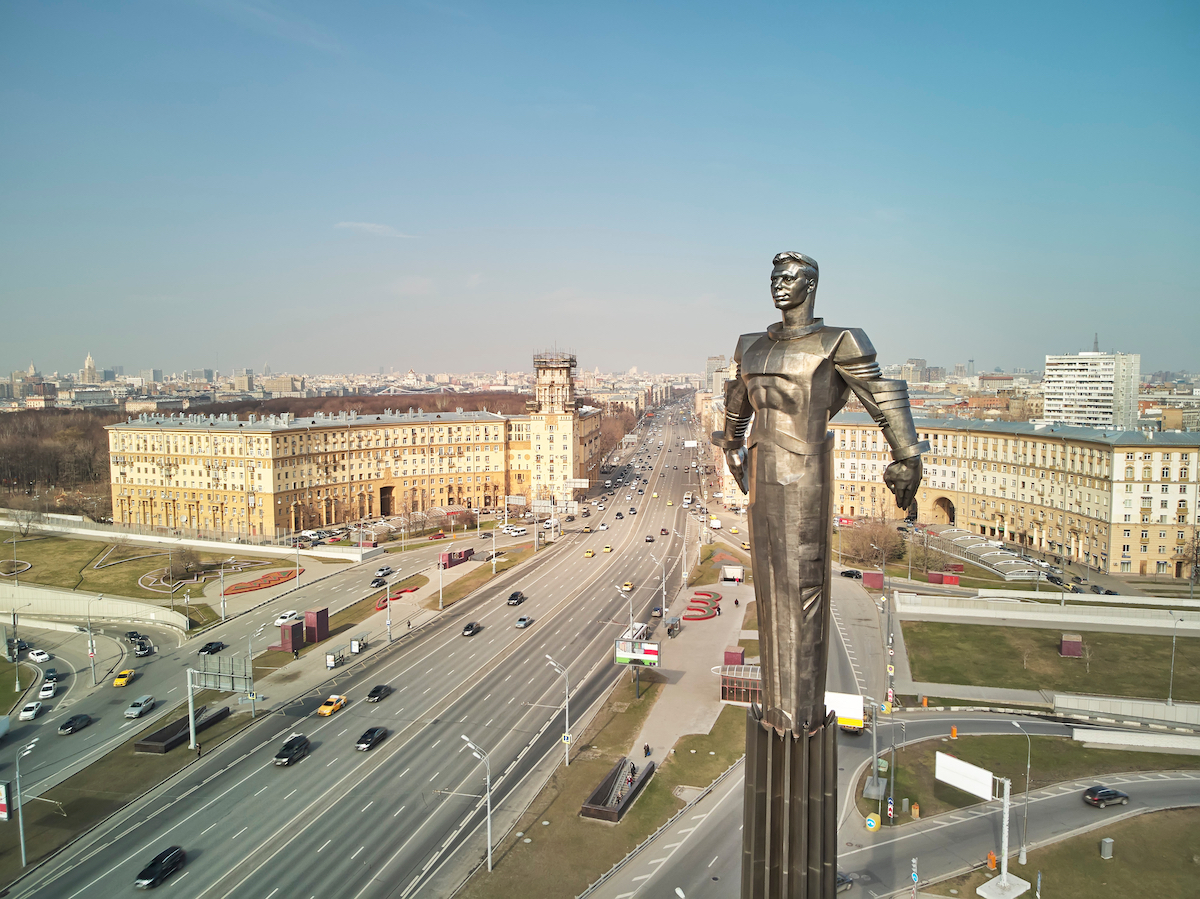
With their village firmly in firing line of the German advance and retreat from Russia, Gagarin and his family faced constant shelling and Nazi occupation between 1941 and 1944.
They spent 21 months living in a hut built on the land behind the family home, while a German officer occupied the house itself. It was during this period that Gagarin, just nine-years-old, became a saboteur in retaliation to an attack on his younger brother Boris; he poured soil into tank batteries and mixed different chemical supplies to ensure they would not recharge.
“Many of the traits of character that suited him in the later years as a pilot and cosmonaut all developed around that time, during the war,” said his brother Valentin, in an interview in the late 1990s.
The Gagarin family moved to the nearby town of Gzhatsk after the war – the town would be renamed ‘Gagarin’ after the cosmonaut’s death in 1968 – and young Yuri continued his education.
Developing a keen interest in science and mathematics at school, Gagarin also had a fascination with aircraft, which was sparked when a fighter plane crash-landed in Klushino during the war.

A FLYING START
At 16, Gagarin began an apprenticeship at a steel plant in Lyubertsy, near Moscow, while finishing his education. He was selected to further his training at the Industrial Technical School in Saratov, where he volunteered locally for weekend training as a Soviet air cadet, joining Air Force Pilots school in 1955.
In 1957, he became a lieutenant in the Soviet Air Forces, working his way through the ranks before expressing an interest in the radical new space programme that was rapidly taking shape. His training, as one of Russia’s ‘Vanguard Six’ cosmonauts, included physical and psychological preparation from oxygen deprivation to long periods of isolation.
The programme’s Air Force doctor evaluated Gagarin in August 1960, writing the pilot was modest and intelligent, with a “fantastic memory; [he] distinguishes himself from his colleagues by his sharp and far-ranging sense of attention to his surroundings; a well-developed imagination; quick reactions; persevering, prepares himself painstakingly for his activities and training exercises, handles celestial mechanics and mathematical formulae with ease…”
Going head-to-head with the USA, the Russian Vostok 1 Programme would eventually win the hotly contested Space Race, which would see Gagarin make history in 1961 as the first human to orbit the Earth.
Launched into space aboard a converted nuclear missile, his orbit only lasted 108 minutes before he returned to earth with a crash – famously landing in a potato field.
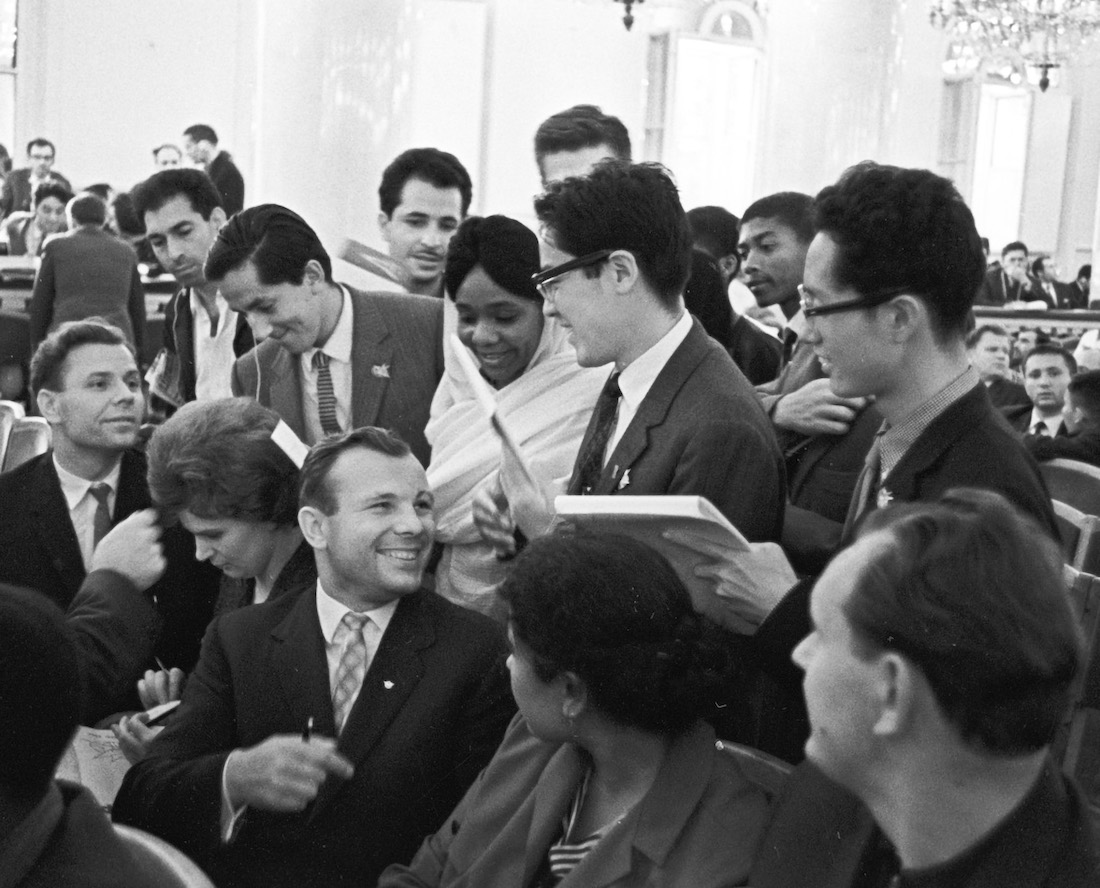
HISTORY IN THE MAKING
Despite the unglamorous re-entry, this was enough for Gagarin to make history, ensuring he would be remembered for eternity as the first man to make it into space.
His success was followed by world tours as the former farm worker rose to global hero status, meeting everyone from world leaders – including the Queen – to movie stars. “To be a hero at all under communism was an anomaly, for no individual could be greater than the collective whole,” says Gagarin’s biographer, Jamie Doran, in his 1998 book Starman.
After his historic spaceflight, Gagarin became deputy director of the Cosmonaut Training Centre and was elected as a deputy of the Soviet of the Union in 1962. He also served as backup crew to the tragic Soyuz 1 mission, which ended in a fatal crash in which Gagarin’s friend, cosmonaut Vladmir Komarov, was killed.
In the following years, Gagarin returned to flying regular aircraft, graduating from the Zhukovsky Air Force Engineering Academy in 1968. But, tragically, his time back in the cockpit was to be short-lived.
Five weeks after his graduation, and just a few days after his 34th birthday, the trailblazing pilot was killed when the MiG-15UTI jet he was piloting mysteriously crashed during a routine training flight.
The cause of the crash has become the subject of multiple conspiracies due to the initial secrecy of three separate investigations – including those conducted by the Air Force and the KGB. With theories ranging from poor weather and ground crew error to a Kremlin-ordered accident, the cause of death of the space-age hero remains something of a mystery to this day.
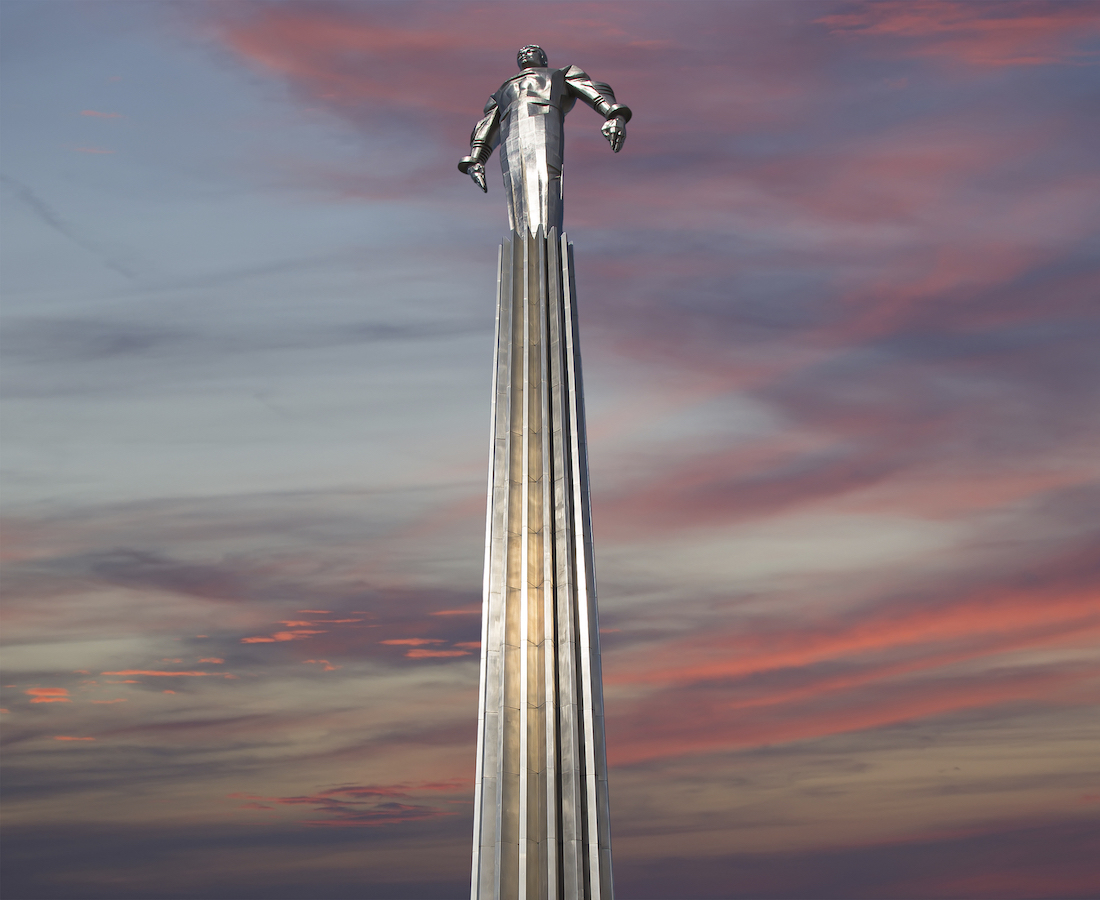
Despite the circumstances surrounding his death, Gagarin’s achievement 60 years ago remains unblemished and still inspires the next generation of scientists and space explorers – the date of his space flight, 12 April, continues to be marked as a national celebration day in Russia.
His zero-to-hero tale of triumph in the face of much adversity is all the more remarkable considering it took place against the curious and complex backdrop of the Cold War Space Race.
“Yuri Gagarin was no superman; he was mortal and flawed, just like the rest of us,” writes Doran in his biography. “Yet he deserves his status in history: not just for the mere fact of being first into space, but also because he lived his life with decency, bravery and honour.”


